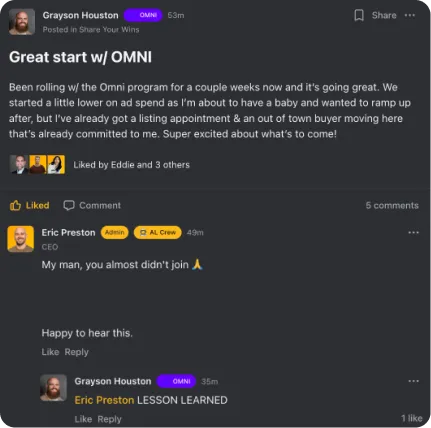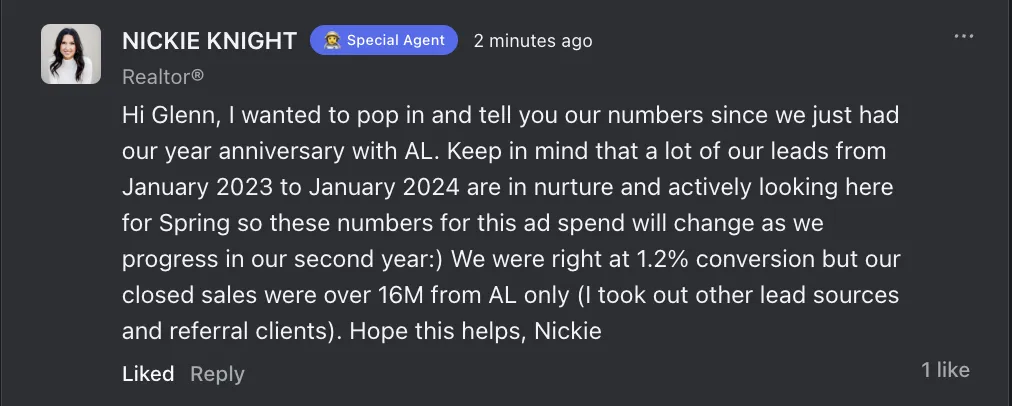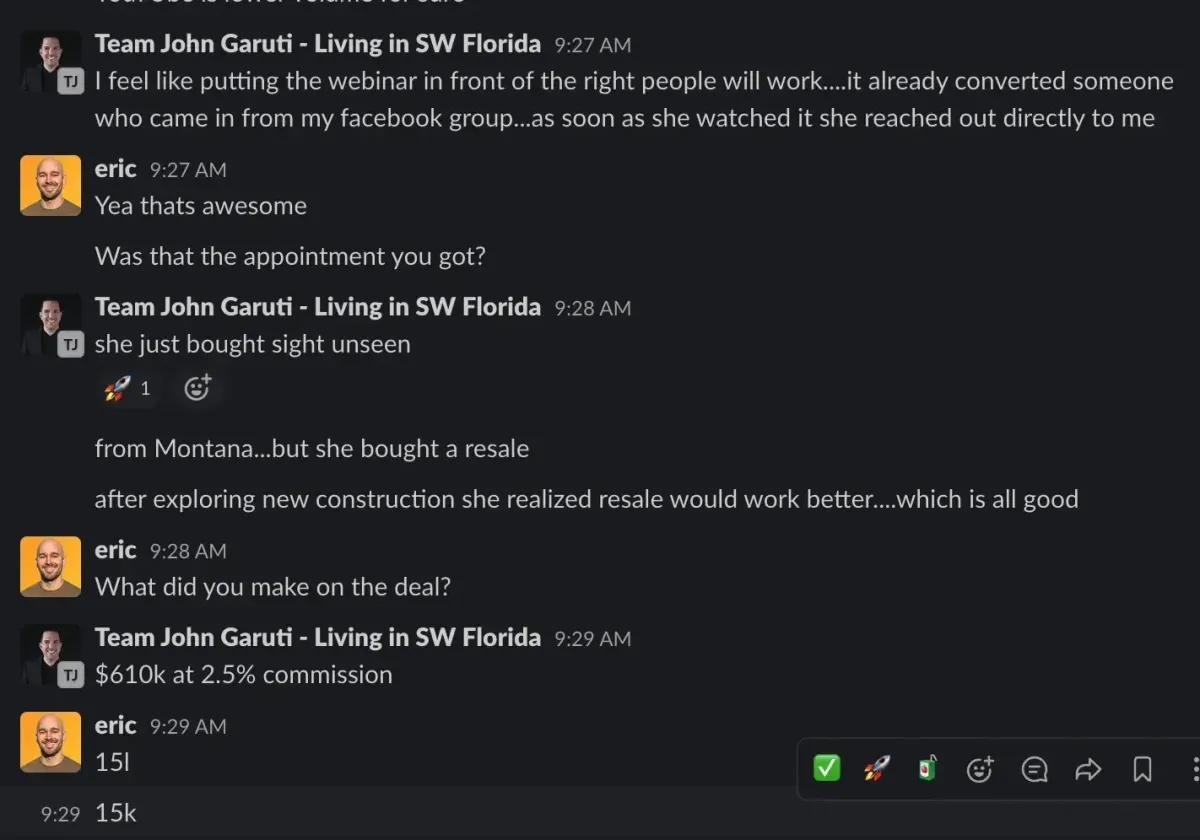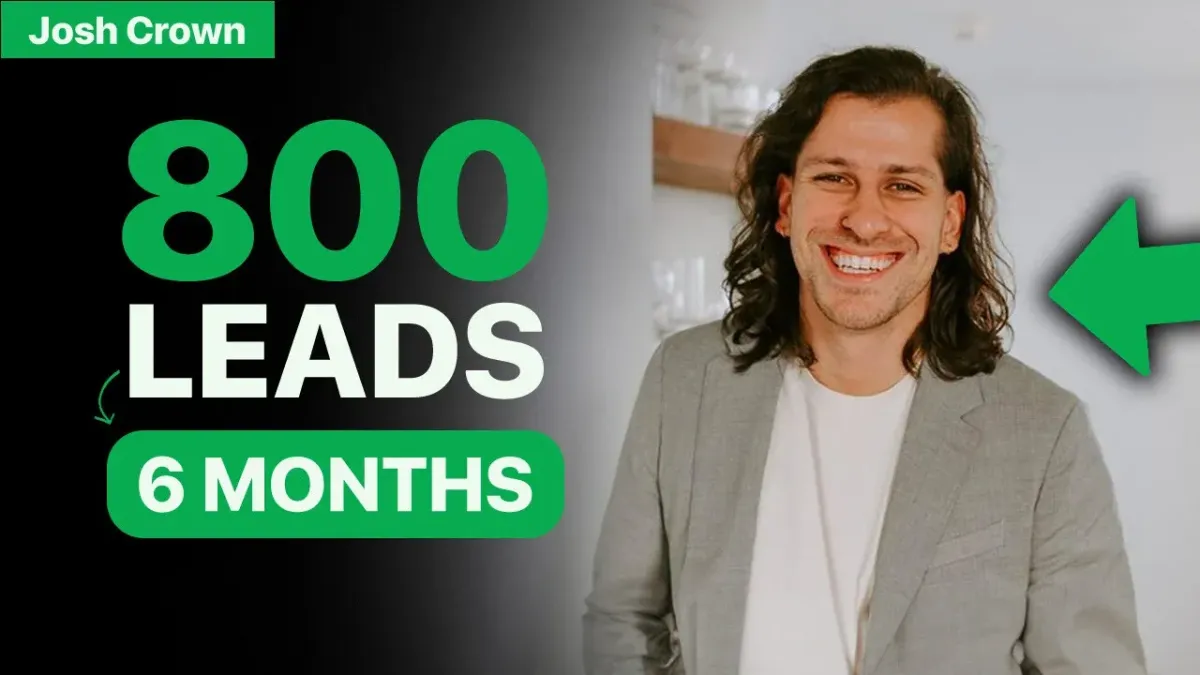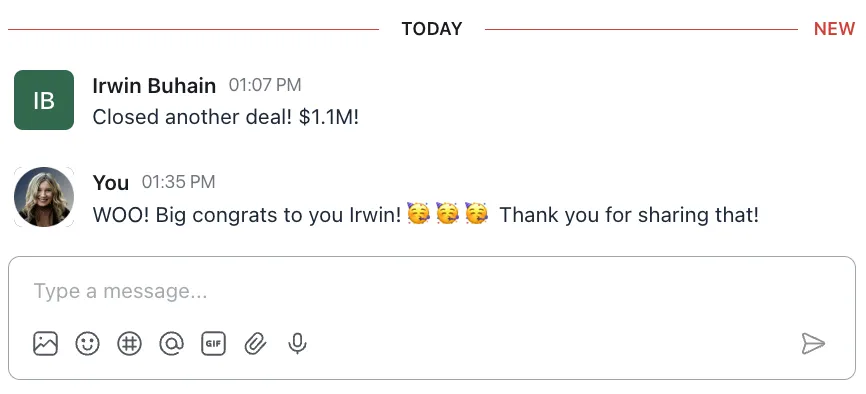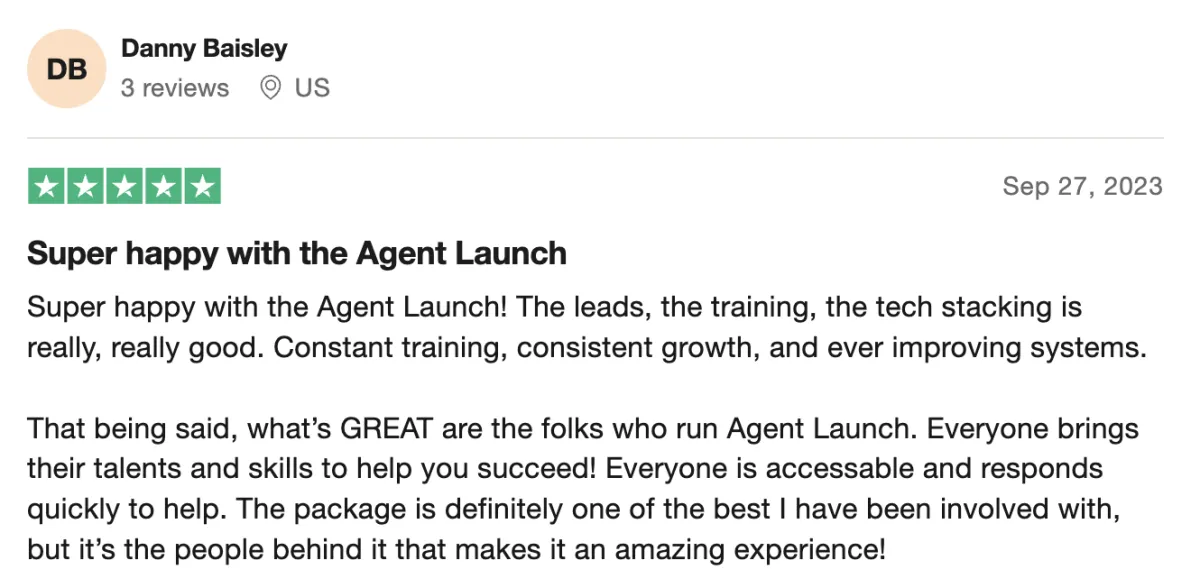ATTENTION: Real estate agents
Discover Real Estate's Best Kept Secret to Confidently Generate New Clients Online
...Without being an online marketing wizard, building complex funnels that don't work or wasting your money on yet another do-it-yourself real estate training program.
CLICK BELOW TO WATCH FIRST!

Ads That Bring in High Intent Prospects
Get in front of motivated buyers and sellers with high-converting Google Ads for real estate agents—optimized for maximum ROI.
Hyper-targeted search campaigns
Focused retargeting campaigns that bring users back
Done-for-you ads management & reporting
Proven systems optimized to get you maximum ROI
Precise Keyword & Location Targeting
Forget about generic leads - you need the right leads.
Our Google Ads focus on precision. That starts with targeting the right keywords AND the right locations WITH the right message.
Massive keyword exclusion list built via $20,000,000 in ad spend
Highest intent long-tail keywords
Highest intent niche location targeting
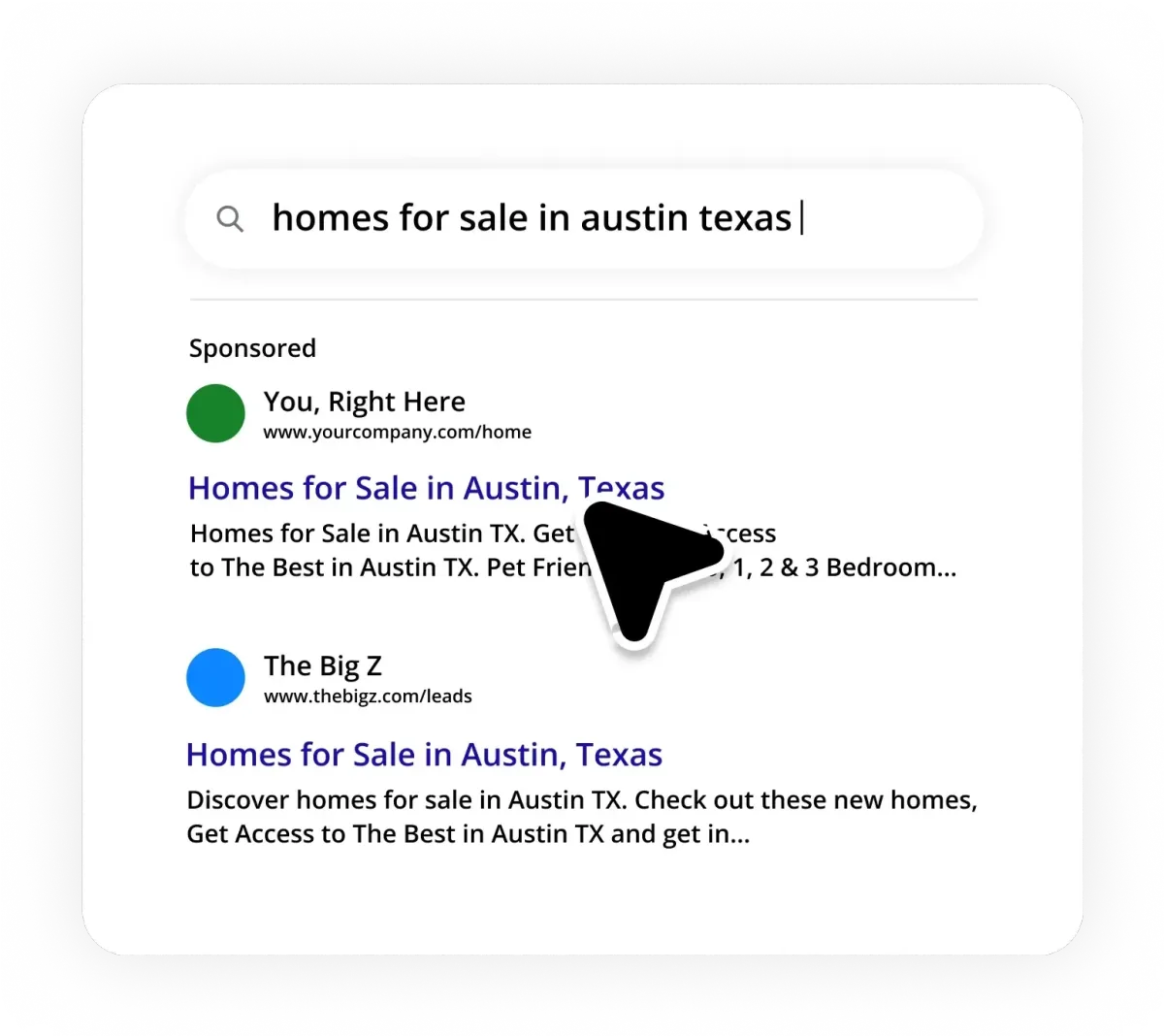
Trusted By





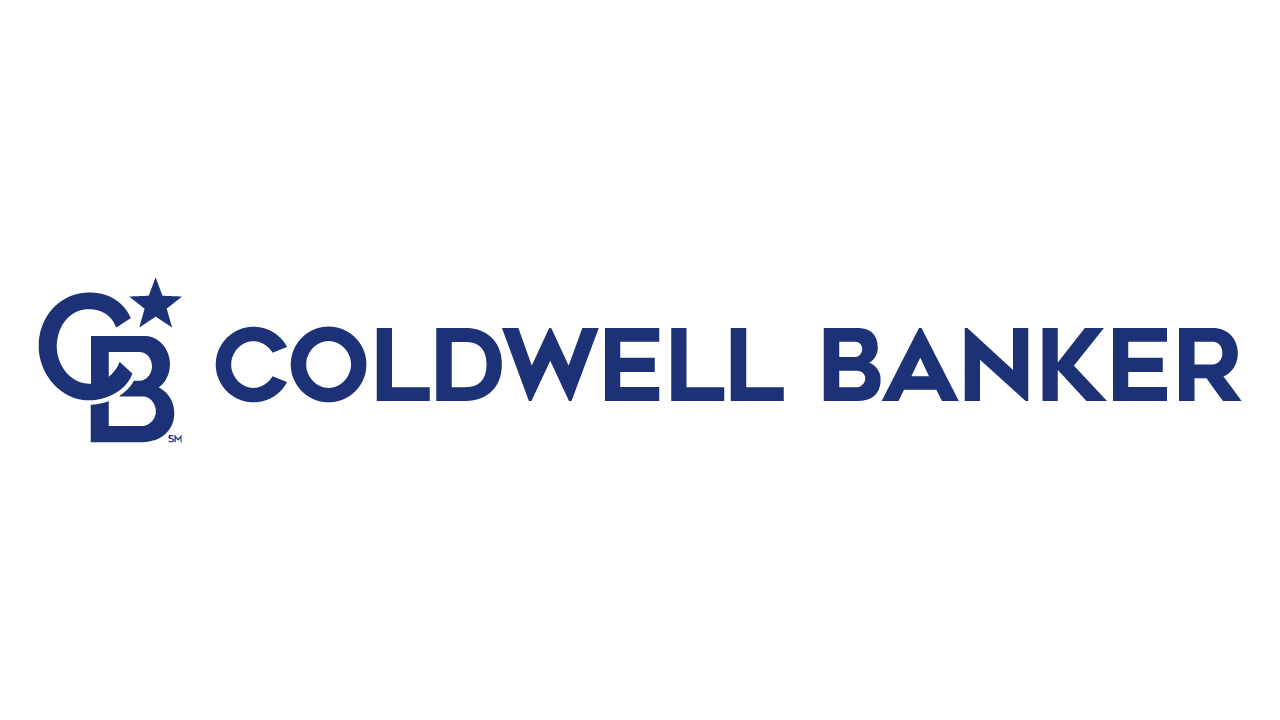




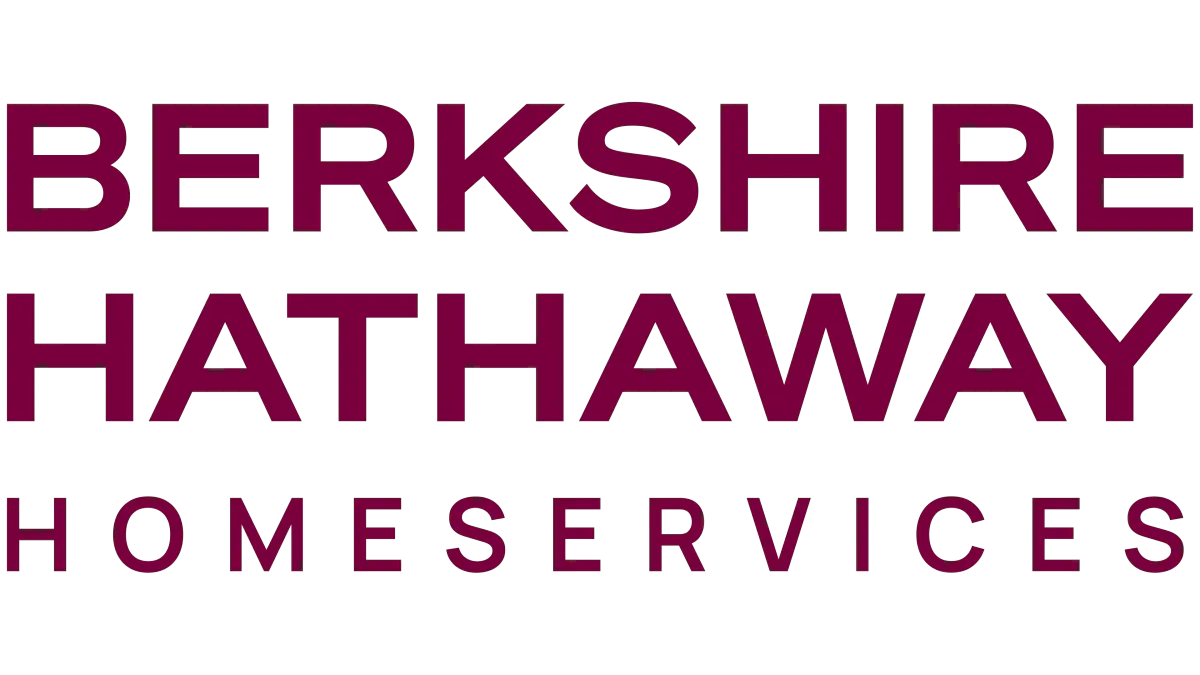


MEET THE FOUNDER

Hey, I'm Eric
I started Agent launch in 2021 to help real estate agents generate clients online. Here's why you should work with us.
Helped over 1,000 real estate agents directly
Been directly involved in generating 3,000+ real estate sales
Been on over 20 real estate podcasts
Been flown around the country to speak on lead generation
Built a loyal 35,000+ followers on YouTube

TESTIMONIALS
REAL PEOPLE, REAL RESULTS
Hear what our agents have to say.
January 20, 2025
Juan
January 10, 2025
Jake
December 28, 2024

Thomas
September 25, 2024
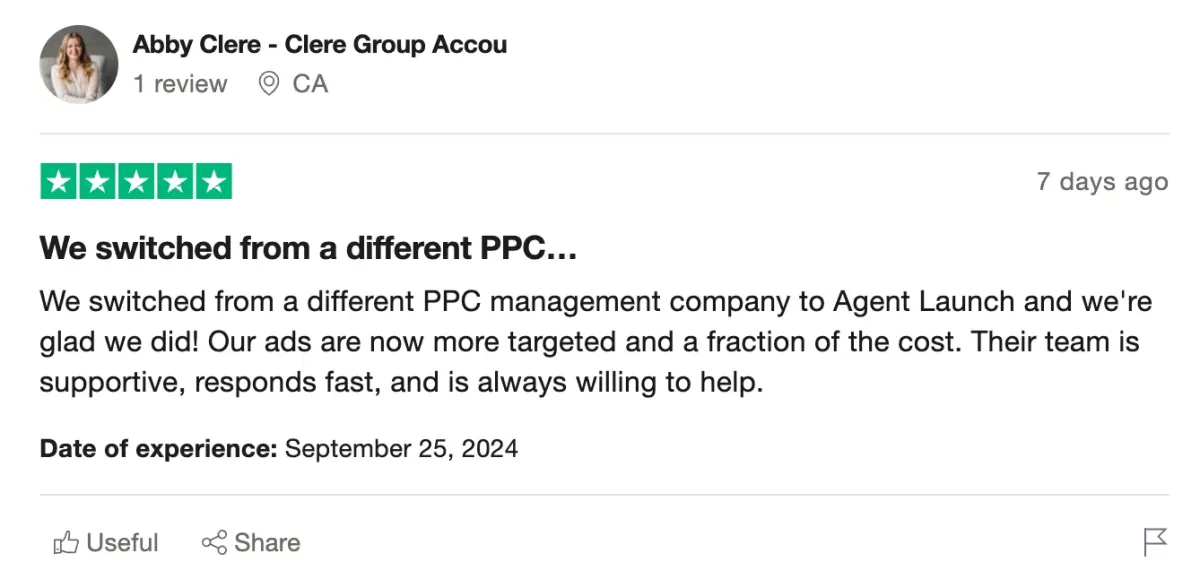
Abby
September 04, 2024
Zak
December 17, 2024

Dedric
August 14, 2024

Jeromy
August 09, 2024
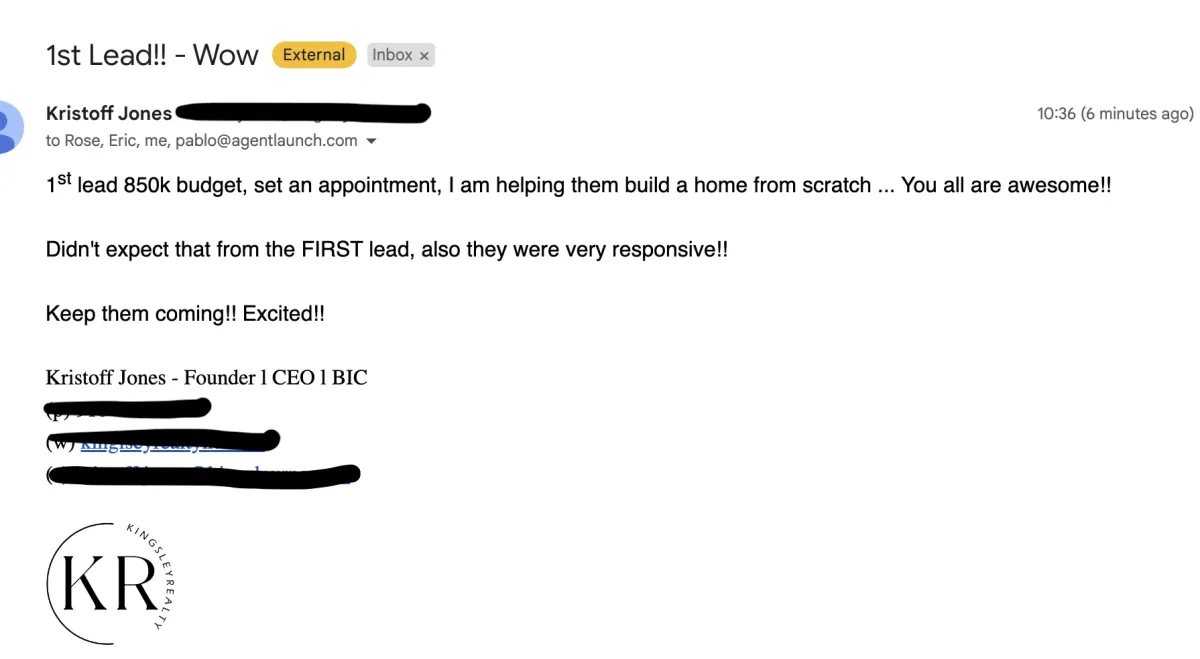
Kristoff
August 20, 2024
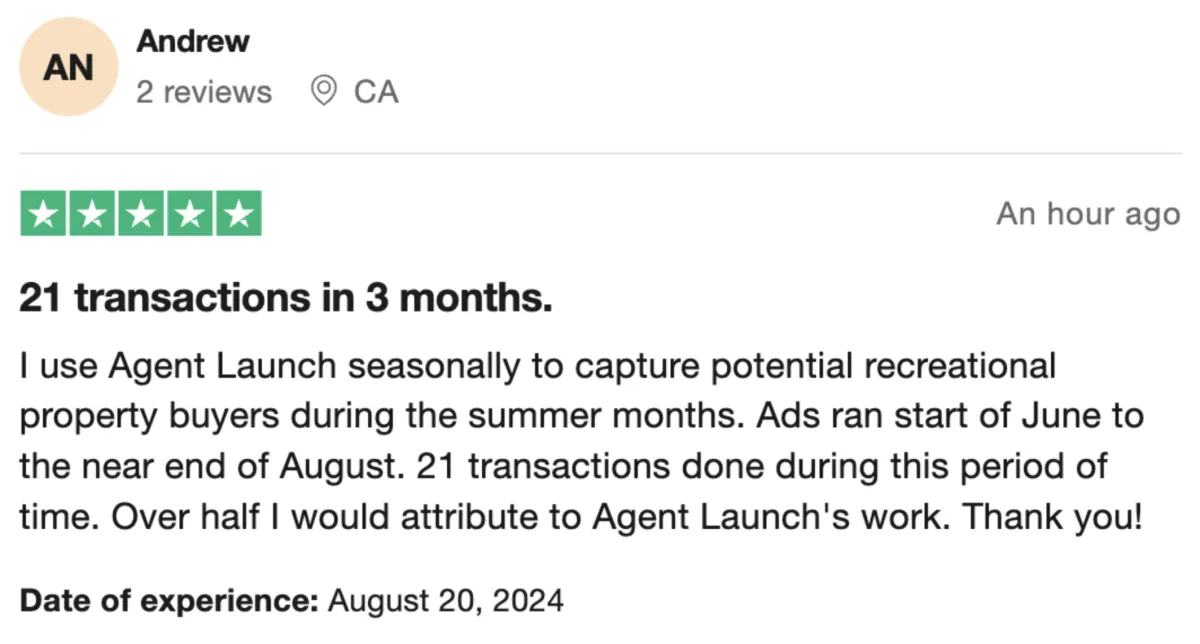
Andrew
July 11, 2024
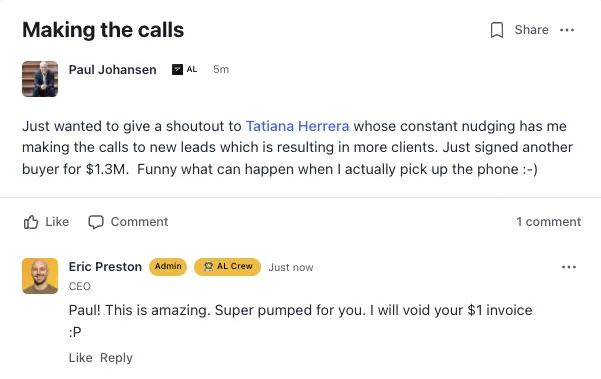
Paul
July 14, 2024
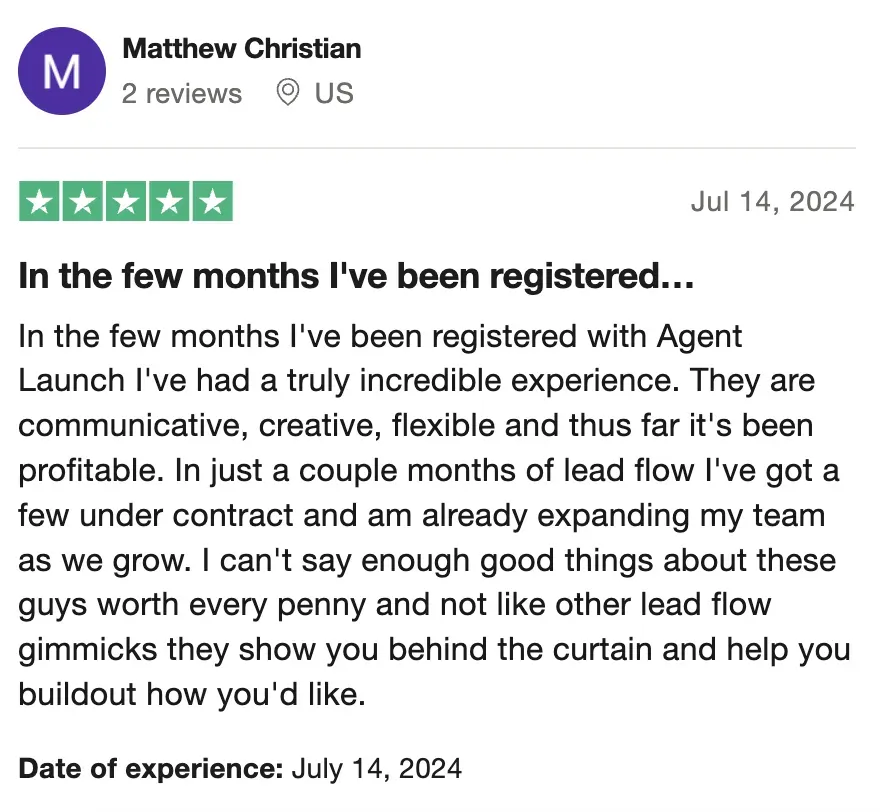
Matthew
July 25, 2024
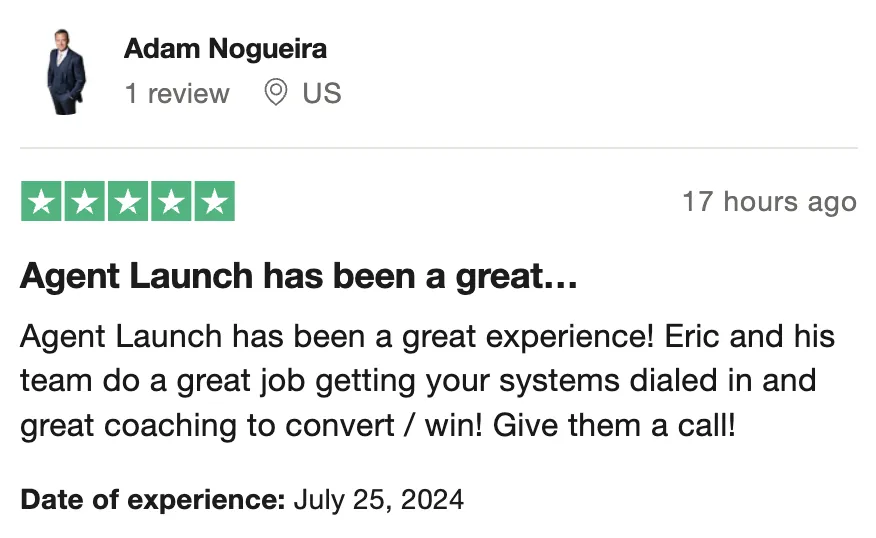
Adam
July 09, 2024

Vaselko
July 05, 2024
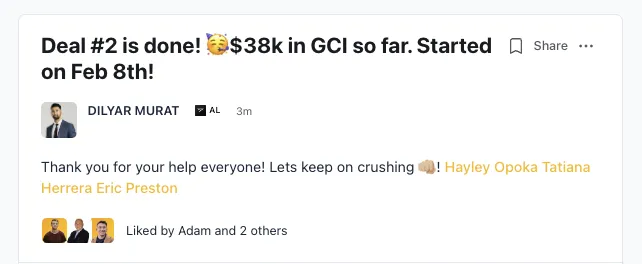
Dilyar
July 10, 2024
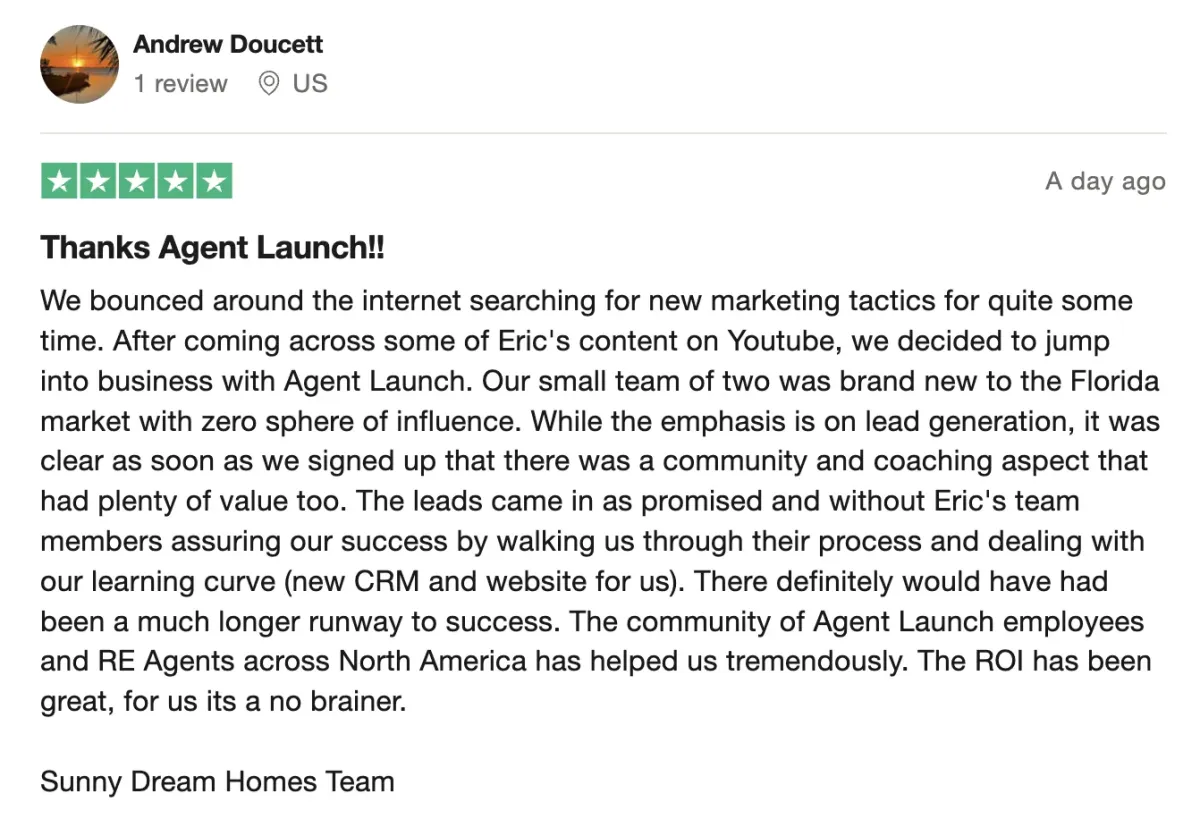
Andy
April 23, 2024
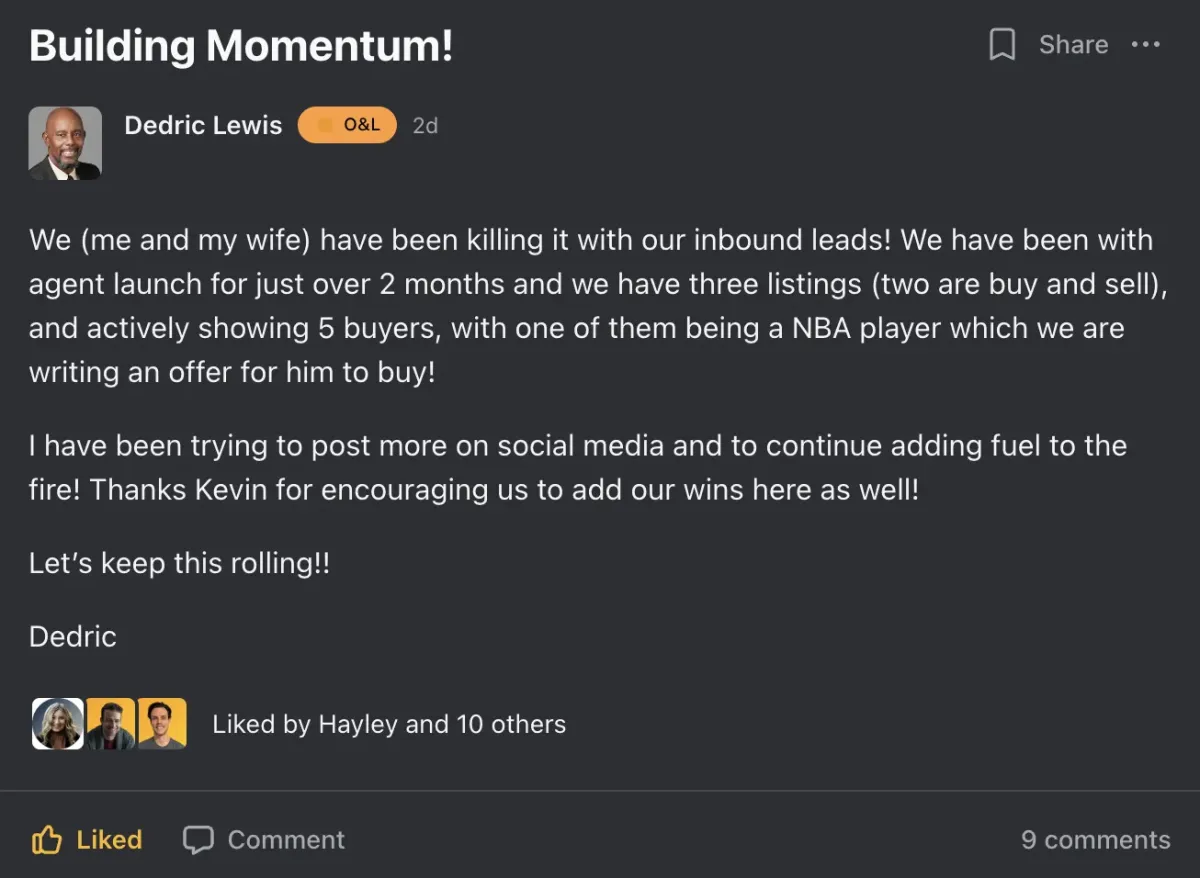
Dedric
April 24, 2024
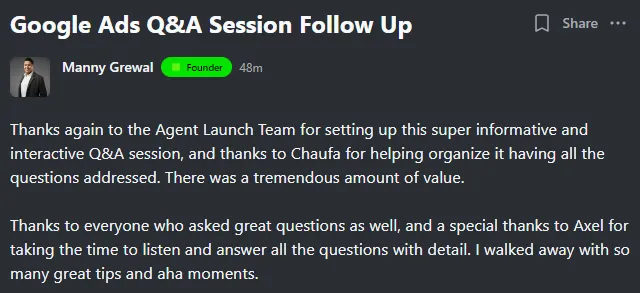
Manny
April 26, 2024
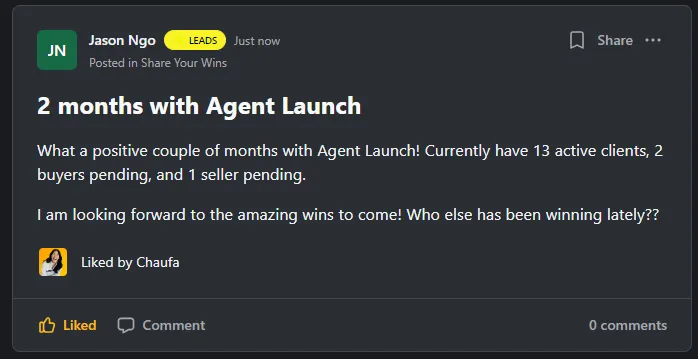
Jason
March 11, 2024
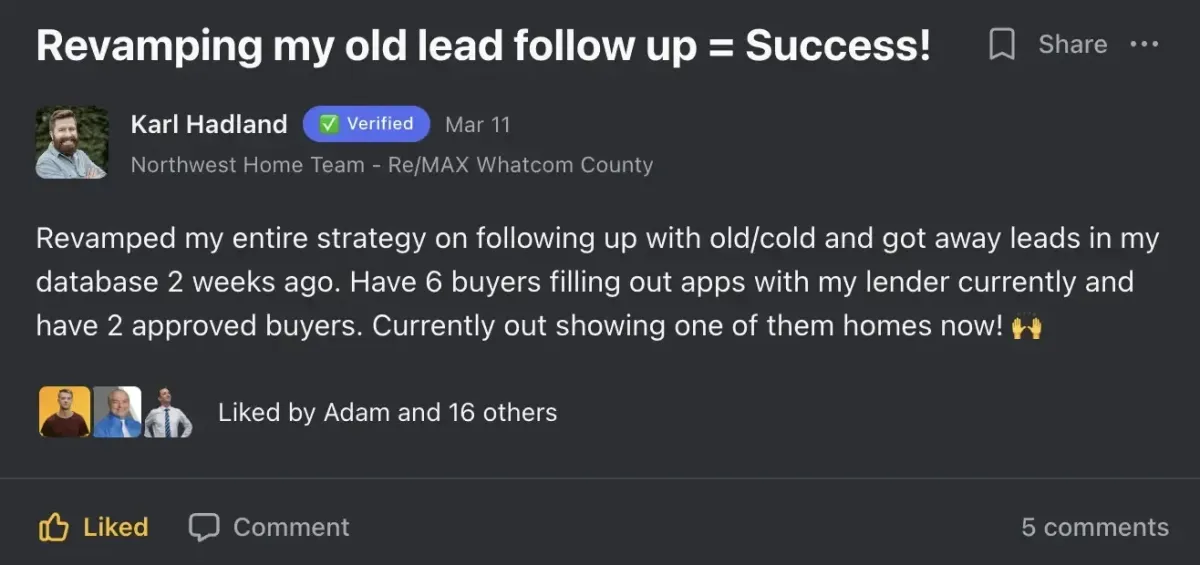
Karl
April 05, 2024

Brock
March 25, 2024
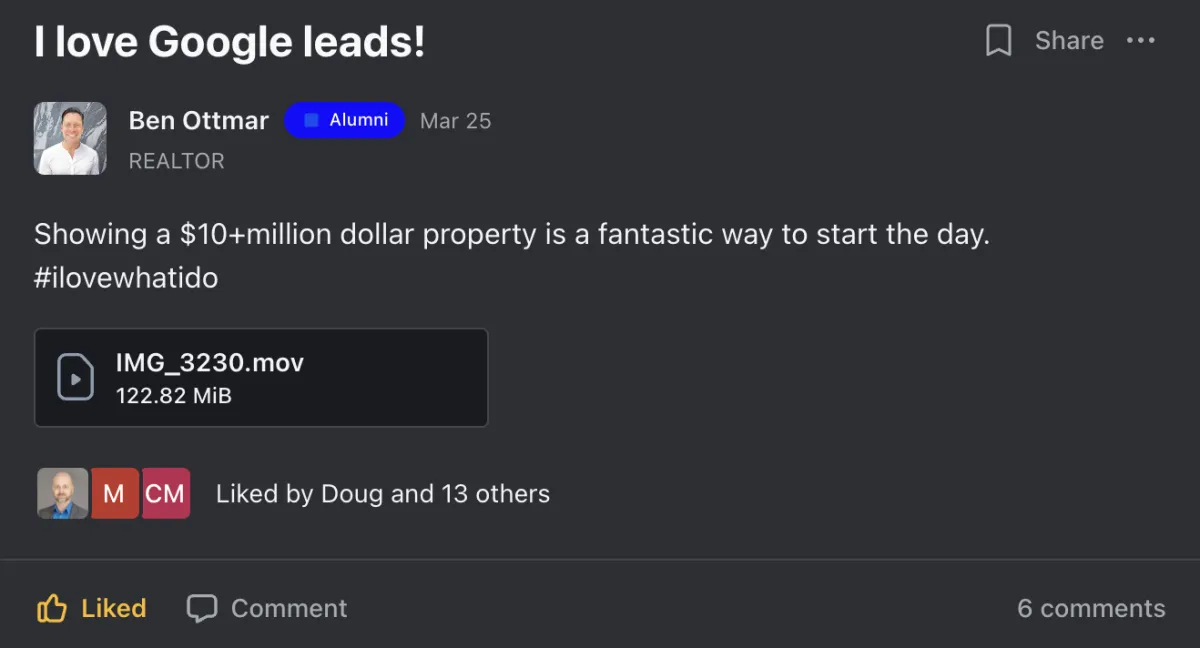
Ben
March 07, 2024
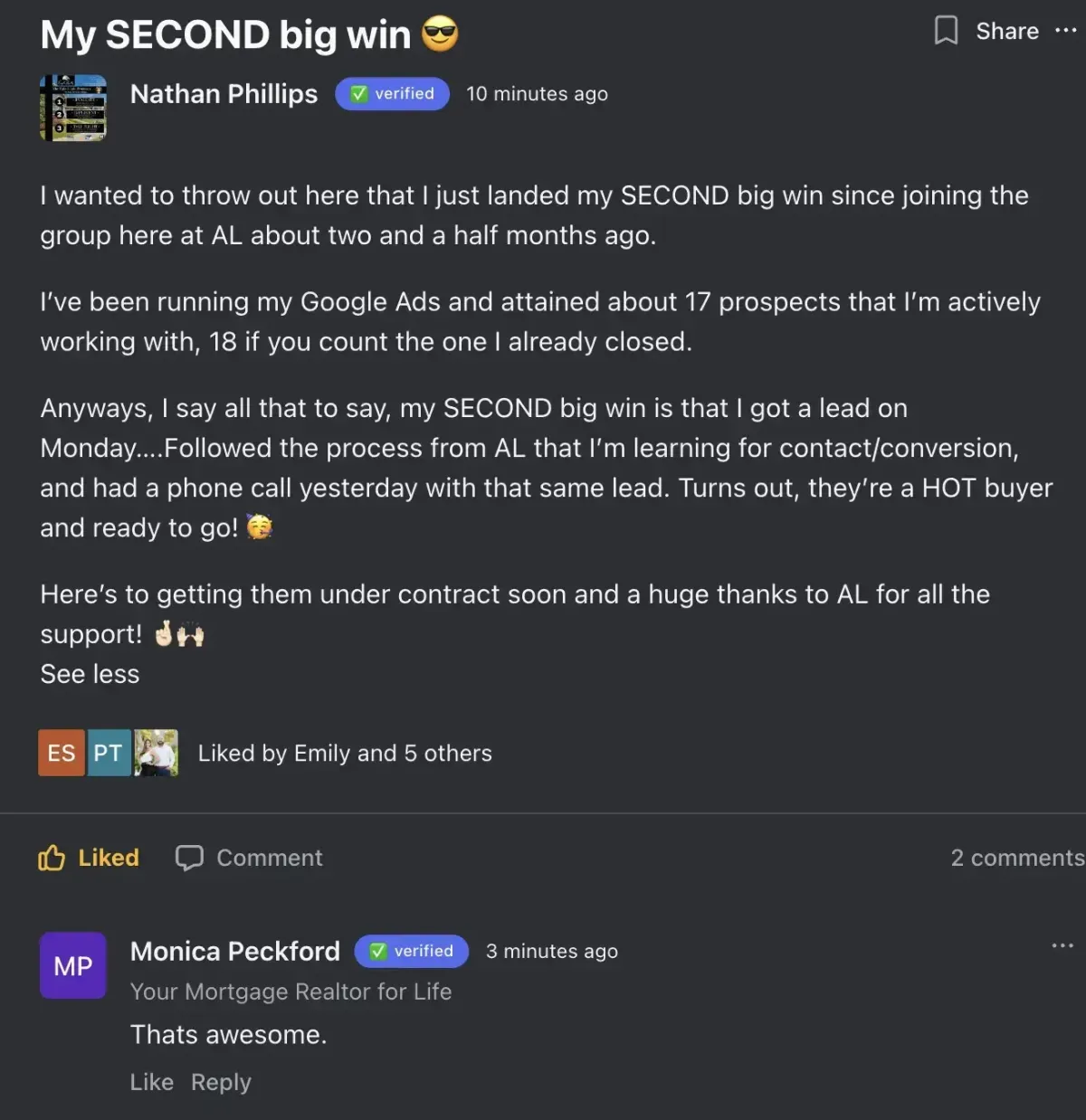
Nathan
February 28, 2024

Lynea
March 22, 2024

Ben
February 09, 2024

Ben
February 26, 2024

Oksana
February 02, 2024

Nathan
April 23, 2024
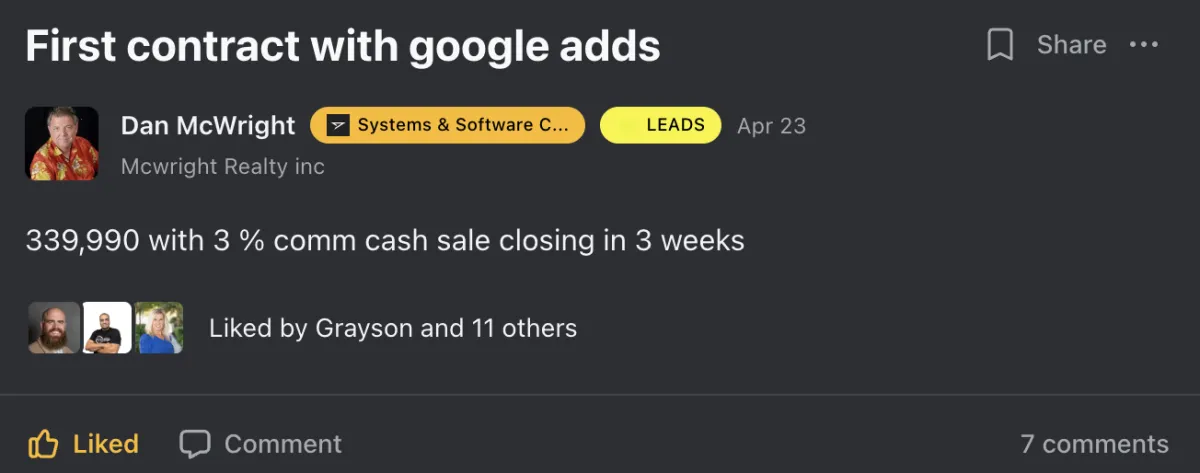
Dan
January 23, 2024

Shawn
March 21, 2024
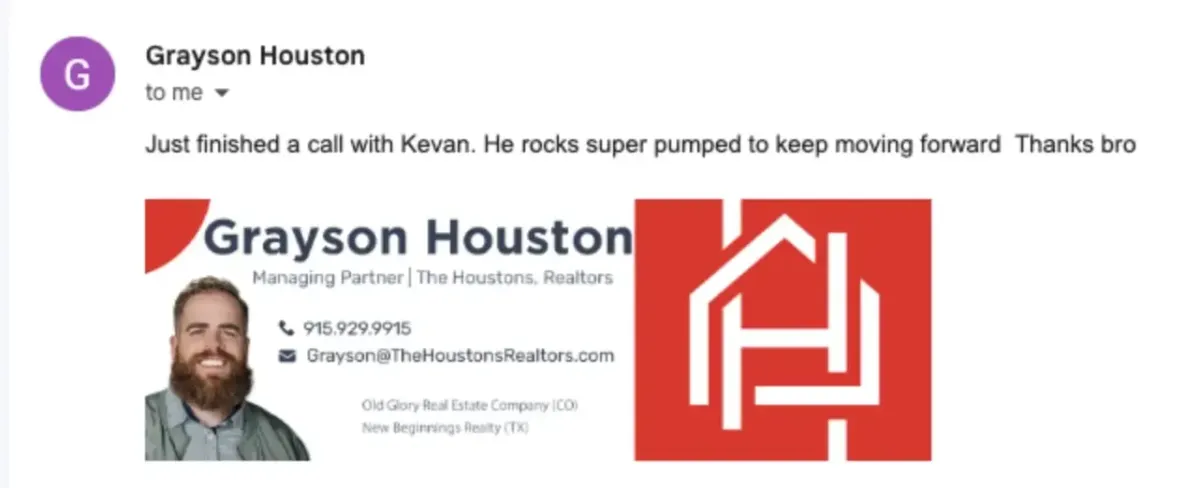
Nathan
December 12, 2023
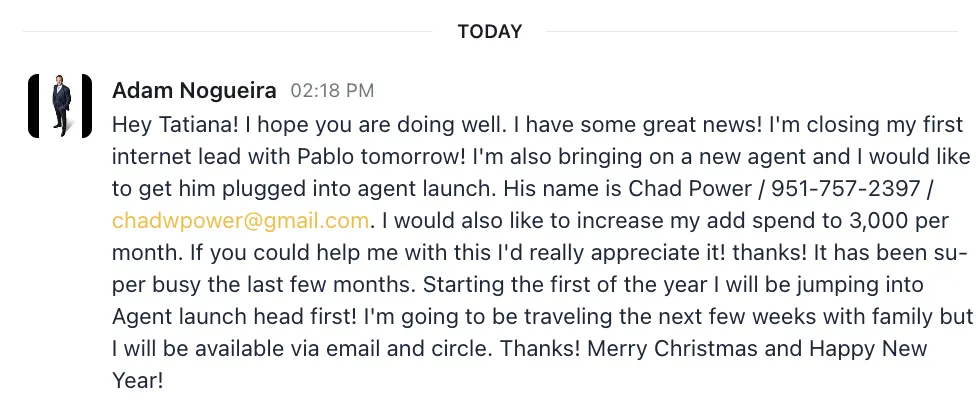
Adam
September 01, 2023

Ben
August 15, 2023

Lex
July 21, 2023

Ray
September 26, 2023
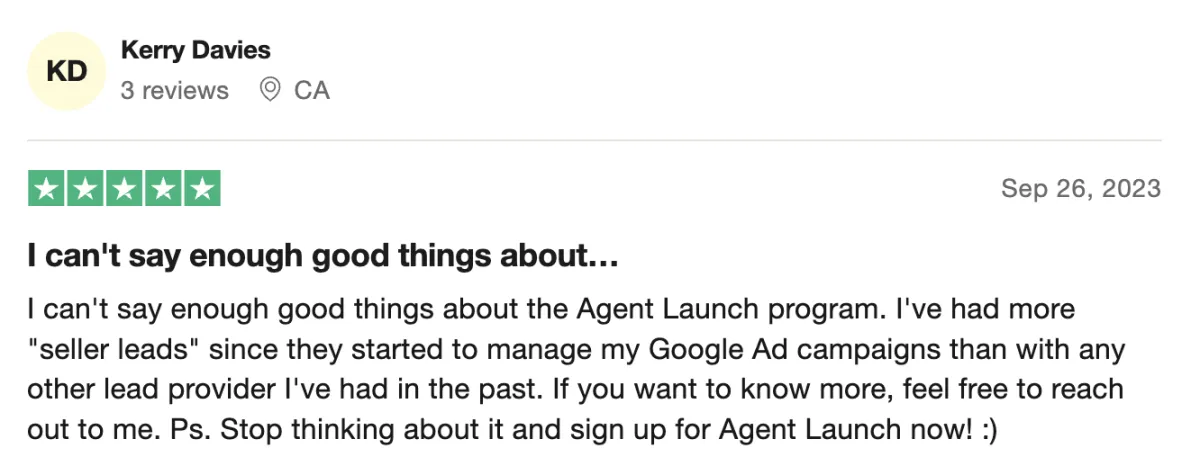
Kerry
September 27, 2023
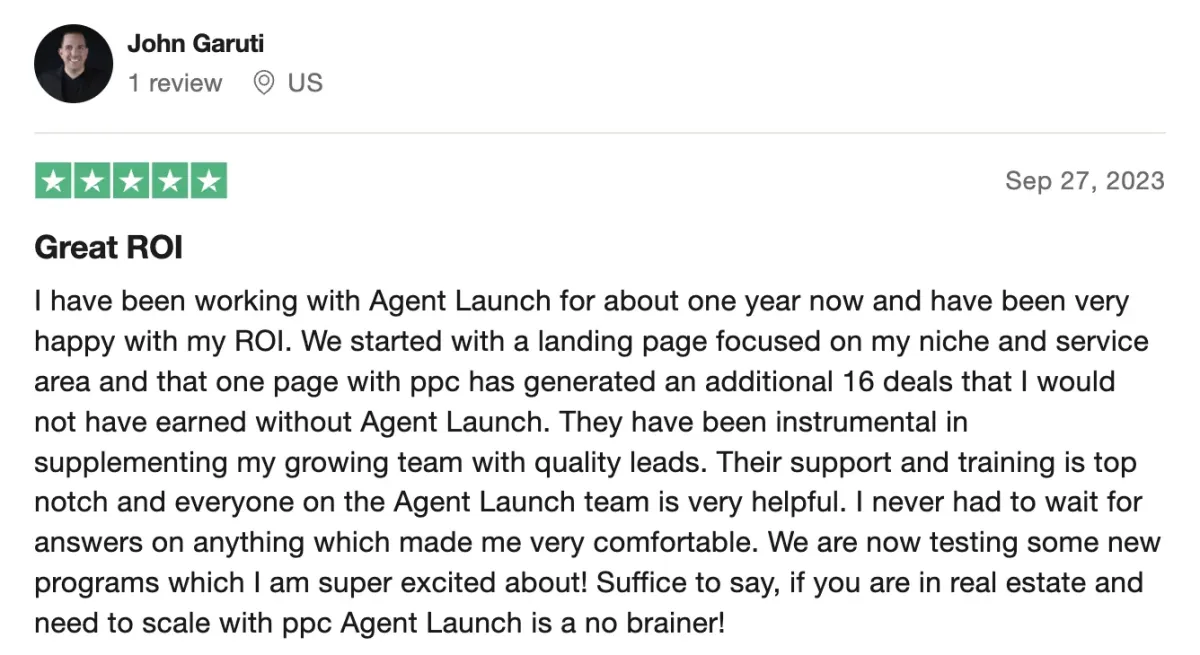
John
July 15, 2023
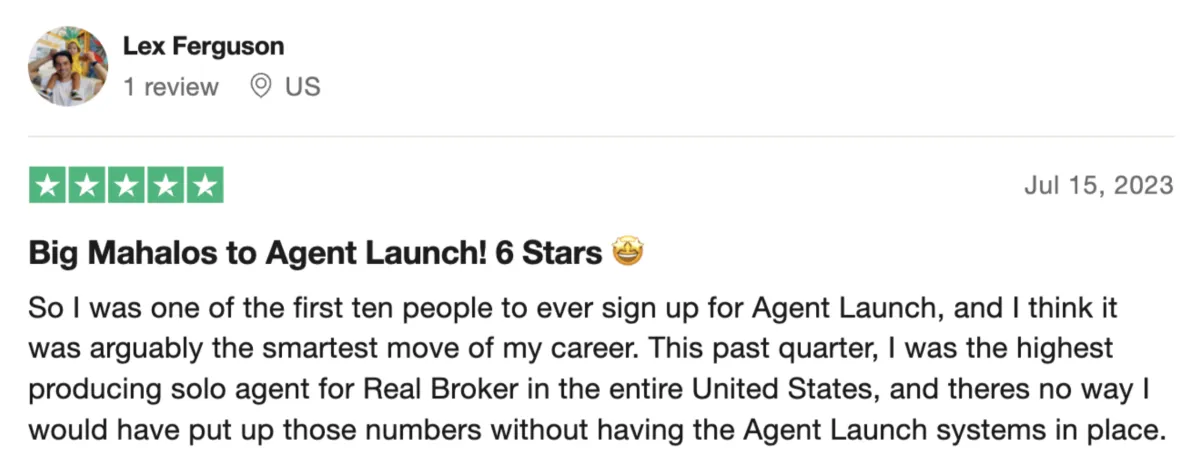
Lex
April 09, 2023
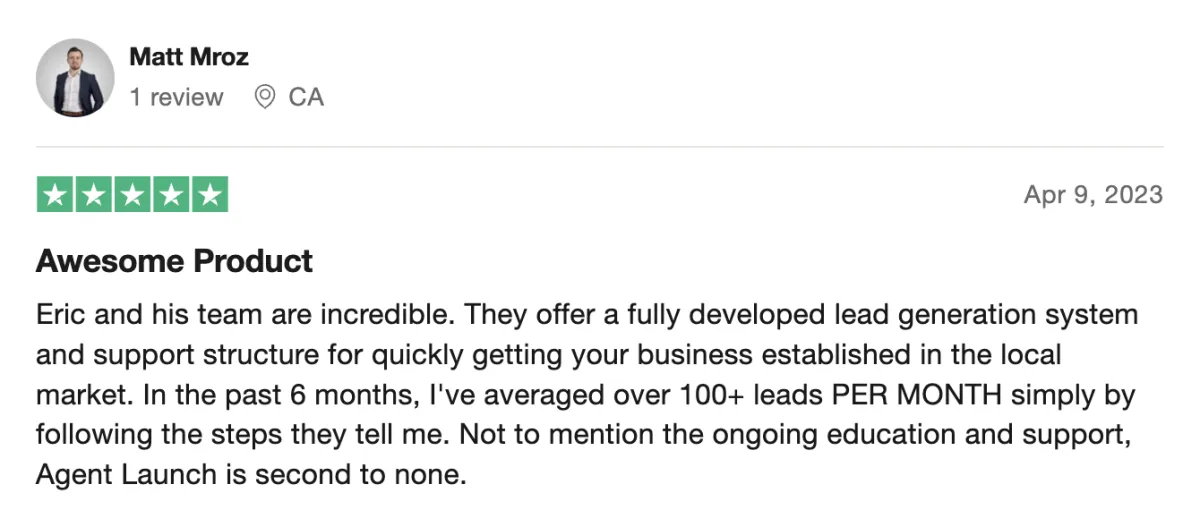
Matt
May 15, 2023
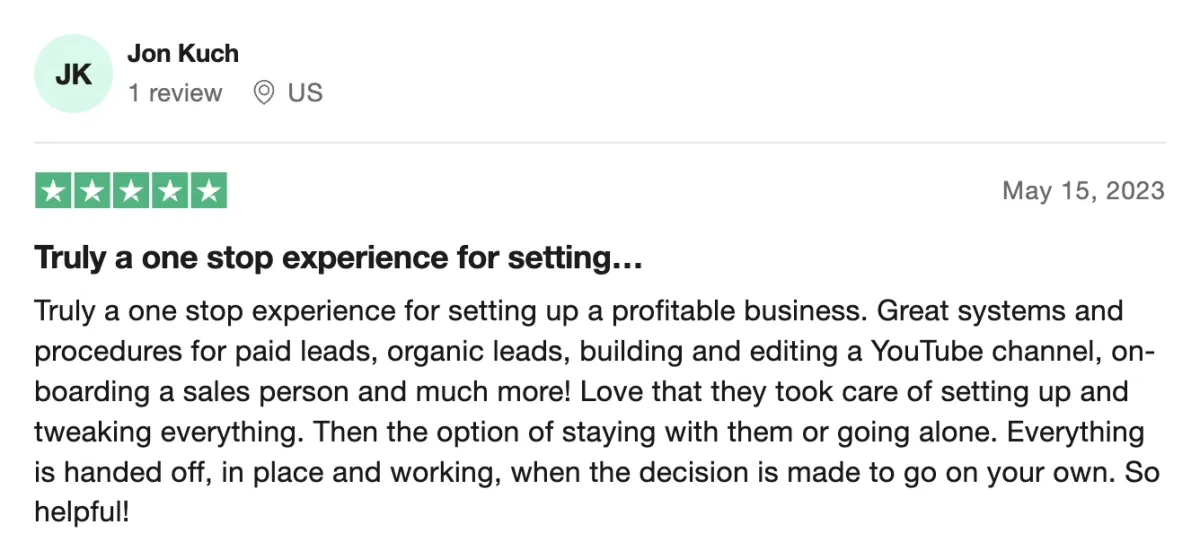
Jon
IMPORTANT: Earnings and Results Disclaimer
*Results and experiences do not guarantee similar results. Individual results may vary based on your skills, experience, motivation, and other unforeseen factors.
STILL NOT SURE?
FAQs
What is the minimum commitment?
Our minimum commitment is 3 months. This is the minimum it takes to really see the full picture results of this (but any) kind of lead generation in real estate.
How much should I budget for real estate lead generation?
Budgets can vary, but many agents start with a monthly budget of around $1,500 for online lead generation efforts. This allows for sufficient reach and the ability to test different strategies to see what works best.The minimum monthly spend for agent launch paid management is $1000/m.
How long does it take to start generating leads?
Generally, we can establish most clients' systems and have them fully functional within a 2-7 days of payment, ensuring that all essential components are correctly implemented and operational.
Are paid leads worth the investment?
Paid leads can be a valuable investment if they are high-quality and have a high conversion potential. We see the highest success with agents who are dedicated to online lead generation and willing to make the calls and follow our process. Speed to lead and having a good conversion system are major keys to success.
How does Agent Launch Generate leads?
Agent Launch generates leads through Google. Google is chosen because it attract buyers who have a high intent to purchase homes, ensuring that the leads we acquire are of high quality and relevance.
Are the leads shared?
With Agent Launch, leads are always exclusive and never shared, guaranteeing that each lead is solely yours and never given to multiple agents.
What's the difference between your Facebook & Google Ads services?
Our Google Ads are targeted at the resale market, and Facebook ads are targeted to people seeking new construction homes specifically for those interested. We find Facebook works best for new homes and Google works best for resale. If you are in a market with a lot of new construction, and want to target that market, Facebook will be the way to go.
What is the conversion rate of the leads?
While this is highly dependent on the agent and their motivation, Agent Launch clients have seen anywhere form 1-5% conversion rate with leads on a 24 month time horizon. Agents who have a tight follow up, nurture process, and can provide the most value to prospective clients see the highest returns.

It's time to meet your future clients
Connect directly with high-intent buyers ready to
find their new home.
©2021 Agent Launch LLC | Privacy Policy | Terms of Service
©2025 Agent Launch LLC | Privacy Policy | Terms of Service
2055 Limestone Rd STE 200-C, Wilmington, DE 19808








